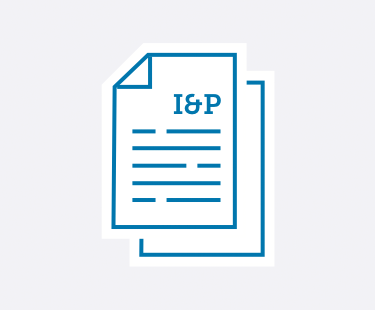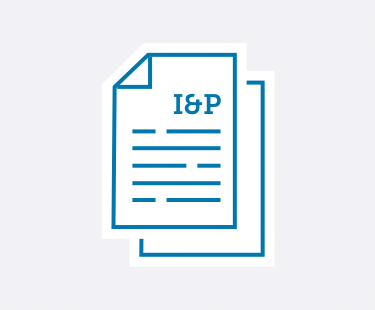

Learn practical strategies to handle emerging trends and leadership challenges in private schools.
No matter if you’re a School Head, Admission Director, Development Director, Board member, or any other private school administrator—Ideas & Perspectives®, ISM’s premier private school publication, has strategic solutions for the pervasive problems you face.
- Tuition not keeping pace with your expenses? In I&P, explore how to use strategic financial planning to create your budget and appropriately adjust your tuition.
- Enrollment dropping off? Discover how to implement the right admission and enrollment management strategies that engage your community—and fill your classrooms.
- Trouble retaining teachers? Learn how you can best support your teachers using ISM’s Comprehensive Faculty Development framework. Your faculty members will become more enthusiastic about their roles—which ultimately improves student outcomes.
- Fundraising campaigns not as successful as you’d hoped? Implement ISM’s practical advice and guidance to build a thriving annual fund, construct an effective capital campaign, and secure major donors—no matter your community size or location.
- Not sure how to provide professional development—for you and your staff? Learn ways to develop and fund a successful professional development strategy. You can improve teacher-centered satisfaction and growth, which in turn strengthens student-centered learning.
- Problematic schedule? You can master the challenges of scheduling with the help of ISM’s practical advice, based on our experience with hundreds of schools and our time-tested theories.
- And so much more.
I&P has shared targeted research, up-to-date insight, and sound theory with school leaders since 1975. More than 8,500 private school decision-makers find the answers to their schools’ administrative and governance matters in our advisory letter. We give you the strategic answers you need.
As an ISM Silver or Gold member, you not only receive issues online and in print 10 times a year, but you have access to 900+ articles in our web archive. Need help? It’s at your fingertips! Learn more and sign up for ISM's membership here.
Search
See the articles from our latest issue of Ideas & Perspectives.
Essential Expectations of the Board President
Volume 41 No. 16 // December 19, 2016
ISM has, in the past, provided counsel about those basic observable behaviors that underlay the Head’s strategic goals in and through the support and evaluation process. In this companion article, we consider the position of the Board President. It is, of course, true that the Board President is a volunteer and not a paid employee of the school. At the same time, the Board President’s position is a key strategic function. And the partnership of the Board President and the School Head is the key strategic partnership in the school.
1. Already a member? Click here to login.
2. Not a member? Click here to become a member.
3. Not sure? We'll help you figure it out.
Professional Development: Five Worst Practices
Volume 41 No. 16 // December 19, 2016
As a Division Head, your most critical responsibility is to increase the capacity of your teachers. You may be in the process of reevaluating your school’s professional development with this in mind. Here are the five worst practices that ISM often witnesses in schools, and the recommendations that go with them.
1. Already a member? Click here to login.
2. Not a member? Click here to become a member.
3. Not sure? We'll help you figure it out.
Can a Talented Teacher Be a Good Administrator?
Volume 41 No. 16 // December 19, 2016
The answer, of course, is a qualified “yes.” As the School Head, you have a vested interest in identifying administrative talent. When you find a teacher who can take charge of an operational area—however small—you relieve yourself or another Administrative Team member of a burden. This may even free time to devote to other imminent tasks and issues.
1. Already a member? Click here to login.
2. Not a member? Click here to become a member.
3. Not sure? We'll help you figure it out.
Your Board’s Key Documents: Do You Know Where They Are?
Volume 41 No. 15 // November 28, 2016
As Chair of your Board’s Committee on Trustees (COT), consider the ease—or difficulty—with which you would be able, if asked, to put your hands on the array of documents that are critical to the history, ongoing life, and future of your school’s governing body. A standard array of such documents could be placed into the categories of: standing documents, pre-planning documents, primary strategic documents, secondary strategic documents, facilitative documents, and archives.
1. Already a member? Click here to login.
2. Not a member? Click here to become a member.
3. Not sure? We'll help you figure it out.
Educational Specifications: The Foundation for the Facility of Your Dreams
Volume 41 No. 15 // November 28, 2016
Any professional, knowledgeable architect will ask your school for educational specifications—a definition of the “who, what, when, why, and how” for each space in the structure. These “building blocks” make the difference between a generic, restrictive structure and one specifically designed to: support your school’s mission; meet the needs of your program; serve the students, faculty, and staff who use the building daily; and stay within your budget constraints.
1. Already a member? Click here to login.
2. Not a member? Click here to become a member.
3. Not sure? We'll help you figure it out.
Professional Learning Communities
Volume 41 No. 14 // November 7, 2016
As School Head or Division Head, you may already be immersed in the practice of Professional Learning Communities (PLC), or you may be just starting to integrate them into your practice. They can, of course, exist in various settings—here we will apply it strictly to teachers working together. The term dates from the 1960s when researchers were already trying to find an antidote to the isolation experienced by teachers. It gained popularity in 1993 with the work of Milbrey McLaughlin, when she and her collaborators identified the major characteristics of a PLC that have largely survived intact to this day.1 These characteristics include:
1. Already a member? Click here to login.
2. Not a member? Click here to become a member.
3. Not sure? We'll help you figure it out.
Faculty, Space, Ownership, and the Schedule
Volume 41 No. 14 // November 7, 2016
ISM has been largely concerned with management and leadership research and improved practice. Throughout, we have advised school leaders within the context of a school’s own mission and the impact of our advice on the lives of students. In our research, we discovered the principle of “freedom-within-structure,” ISM’s predictability and support model that is the foundation of great teaching practice. While structure/predictability was construed as “what the teacher wanted to do” in the conventional (20th century) educational paradigm, the new paradigm (21st century) includes the teacher and the student in an ever-evolving relationship.
1. Already a member? Click here to login.
2. Not a member? Click here to become a member.
3. Not sure? We'll help you figure it out.
Private-Independent Schools and Personal Financial Information
Volume 41 No. 14 // November 7, 2016
Private-independent schools typically do not think of themselves as financial institutions. But their engagement in certain financial activities may subject them to obligations under the federal Financial Services Modernization Act of 1999, commonly known as the Gramm-Leach-Bliley Act (GLBA). Additionally, every school that hires any third-party vendor with access to the “nonpublic personal information” (NPI) of employees or students should be concerned about the terms and conditions of the contract relating to data protection and response to data breaches. To the extent that those vendors perform financial activities and are covered by GLBA, then contract provisions relating to GLBA compliance are important and the school should ensure that they are adequate.
1. Already a member? Click here to login.
2. Not a member? Click here to become a member.
3. Not sure? We'll help you figure it out.
Faculty, Facilities, and Technology
Volume 41 No. 13 // October 17, 2016
Private-independent schools have struggled with integrating technology into buildings for many years now, facing issues such as bandwidth and power sources. Planning our school buildings now requires a deeper conversation that includes teachers. While some schools continue to eschew the greater use of technology for philosophical reasons, most schools that embrace and integrate the use of new technology have a competitive edge in the education landscape. This does not imply that technology is necessarily an attractant. More fundamentally, the power of personalized, adaptive technology and feedback enhances instruction and learning, and can be a game changer in the effectiveness of the school’s mission delivery.
1. Already a member? Click here to login.
2. Not a member? Click here to become a member.
3. Not sure? We'll help you figure it out.
Tailoring Your Five-Minute Speech
Volume 41 No. 13 // October 17, 2016
As the Marketing Communications Director, you understand that a five-minute speech is a valuable marketing tool—an effective strategy that generates good word-of-mouth. Handled properly, the speech shares accurate, positive information about your school. Whether the audience is an auditorium full of families waiting for a performance to begin, a representative of the media, or a small group of donors, use the opportunity to train your listeners in ways they can talk about your school. Each speech should be personalized, not generic or “canned.
1. Already a member? Click here to login.
2. Not a member? Click here to become a member.
3. Not sure? We'll help you figure it out.


